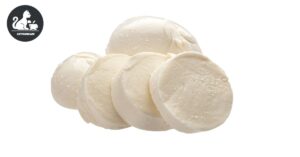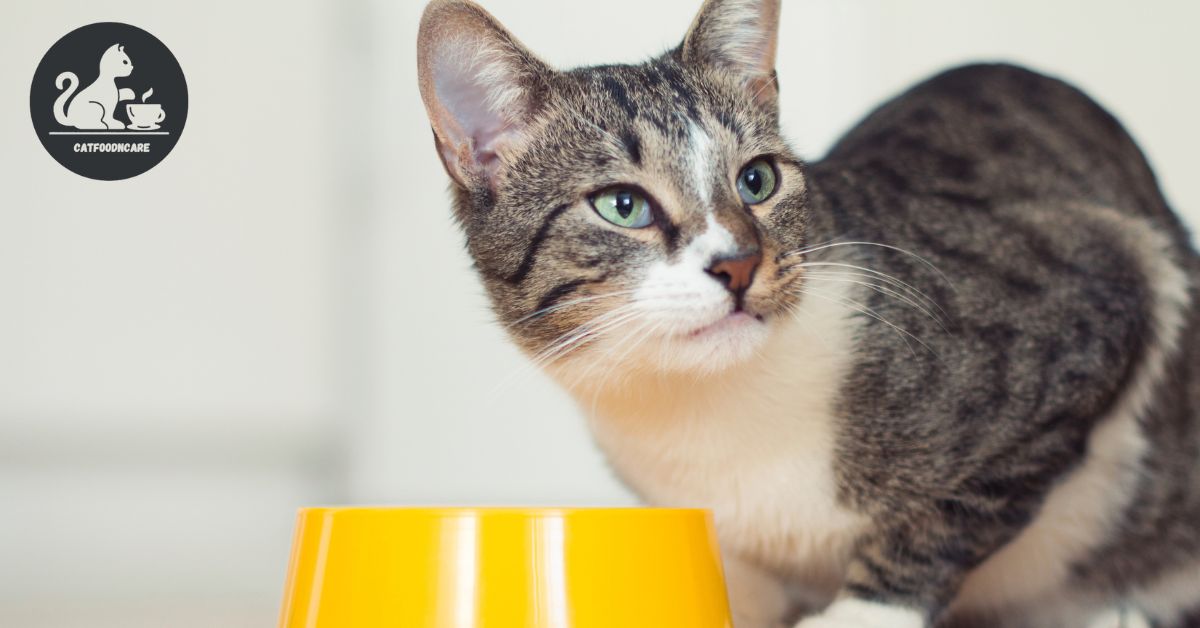As a pet parent, you might have wondered if your feline friend can enjoy a bit of cheese. Specifically, can cats eat mozzarella cheese? The quick answer is yes, but it’s not that simple. While cats can technically eat mozzarella cheese, it’s not necessarily a healthy option for them.
Cats are carnivores and their diet should primarily consist of animal-based proteins. Dairy products like cheese can be difficult for some cats to digest and may cause digestive issues. This is because many cats are lactose intolerant, meaning they lack the lactase enzyme needed to break down the lactose in dairy products.
Mozzarella cheese, like other types of cheese, also has a high fat content. Too much fat can lead to health issues in cats, including obesity and heart health problems. Additionally, cheese can be high in salt, and too much salt intake can lead to high blood pressure in cats.
So, while a small piece of mozzarella cheese might be a tasty treat for your cat, it should only be given as an occasional treat and not a regular part of their diet. Always consult with a vet before introducing new foods into your cat’s diet, especially if they have a health condition like kidney disease.
Remember, while it’s tempting to share our human foods with our furry friends, not all foods that are safe for us are safe for them. Some foods can even be toxic to cats. Always do your research and when in doubt, ask a vet.
What Do Veterinarians Say about Feeding Mozzarella Cheese to Cats?
Veterinarians agree that while cats can eat mozzarella cheese, it should only be given as an occasional treat. This is because cats are often lactose intolerant, meaning they have difficulty digesting dairy products like cheese. Feeding your feline friend too much cheese can lead to digestive issues such as upset stomach or diarrhea.

Certain types of cheese, like blue cheese or moldy cheeses, should be avoided entirely as they can contain a type of fungus that is harmful to cats. Also, soft cheeses like cream cheese and cottage cheese have a high fat content which can lead to health issues like obesity and pancreatitis.
If your cat enjoys the taste of cheese, consider giving them a small piece of mozzarella or swiss cheese as a special treat. These cheeses are lower in lactose and fat compared to other types of cheese. However, it’s important to remember that cheese should never replace a balanced diet of cat food, which is specifically designed to meet your cat’s nutritional needs.
while a small bit of cheese can be a tasty treat for your cat, it’s important to feed it in moderation to avoid any potential health issues. Always consult with a vet if you have any concerns about your cat’s diet.
Can Cats Eat Mozzarella Cheese?
Yes, cats can eat mozzarella cheese, but it should be given in moderation. While mozzarella is a soft cheese and easier for cats to digest than harder cheeses, it still contains lactose. Some cats are lactose intolerant and can suffer from digestive issues if they consume too much dairy.
However, a small piece of cheese can be a tasty treat for your feline friend. It’s important to avoid giving your cat blue cheese or other moldy cheeses, as these can be harmful.
Also, be aware of the fat content in cheese. Too much can lead to obesity and other health conditions. If your cat has a dairy allergy, consider giving them non-dairy cheese as an occasional treat.
Always monitor your cat for signs of lactose intolerance or allergic reactions after giving them cheese. If they show any signs of distress, contact your vet immediately.
Remember, while cheese can be a fun treat, it should not replace a balanced diet of cat-appropriate food.
Nutritional Benefits of Mozzarella Cheese for Cats?
Mozzarella cheese can be a tasty treat for your feline friend, but it should be given in moderation. Here are some nutritional benefits of mozzarella cheese for cats:
- Mozzarella cheese is a source of protein. Cats require plenty of protein in their diet as they are obligate carnivores. This means they need animal-based proteins to thrive.
- This type of cheese has less lactose content compared to other dairy products. This is beneficial as some cats can be lactose intolerant, leading to digestive issues.
- Mozzarella cheese also contains calcium which is essential for bone health in cats.
- It can also provide a small amount of Vitamin A, which is important for a cat’s vision, growth, and immune health.
However, pet parents should be aware that too much cheese can lead to health issues such as obesity due to its high-fat content. It’s also important to note that not all cats can tolerate dairy products. Always monitor your cat for any signs of lactose intolerance or allergic reactions after feeding them cheese.
Remember, while mozzarella cheese can be a special treat, it should not replace a balanced diet of cat-appropriate food. Always consult with a vet for professional advice on your cat’s diet.
Potential Health risks of feeding mozzarella cheese to cats?
Feeding your feline friend mozzarella cheese might seem like a tasty treat, but it can pose potential health risks. Here are some reasons why:
- Cats are lactose intolerant: Just like some humans, many cats can’t digest lactose, a sugar found in dairy products like mozzarella cheese. This can lead to digestive issues such as diarrhea or vomiting.
- High fat content: Mozzarella and other types of cheese have a high fat content. Too much fat can lead to obesity and other health conditions in cats, like diabetes and heart disease.
- Salt intake: Cheese, including mozzarella, contains salt. Excessive salt intake can increase blood pressure and cause kidney disease in cats.
- Allergic reactions: Some cats might be allergic to dairy products, leading to symptoms like itchy skin or gastrointestinal distress.
- Additional ingredients: Some cheeses may contain additional ingredients that are harmful to cats, like garlic or onions.
Remember, while a small piece of cheese might not harm your cat, it’s best to stick to cat-friendly treats. Always consult with a vet if you have any concerns about your cat’s diet.
How to Feed Mozzarella Cheese to Cats Safely?
Feeding your feline friend mozzarella cheese can be a tasty treat, but it’s important to do so safely. Cats can eat mozzarella cheese, but it should be given in moderation as an occasional treat. Here’s a step by step guide on how to feed mozzarella cheese to cats safely.
Step 1: Choose the Right Cheese
Not all cheeses are safe for cats. Avoid blue cheese, soft cheeses, and moldy cheeses as they can cause digestive issues. Mozzarella cheese is a good choice because it’s a semi-hard cheese with a lower lactose content compared to other types of cheese.
Step 2: Check for Additional Ingredients
Some cheeses, like cream cheese or flavored varieties, may contain additional ingredients that are harmful to cats. Always check the label before feeding your cat cheese.
Step 3: Portion Control
Cats are much smaller than humans, so a small piece of cheese is plenty for them. A cube of cheddar cheese or a bit of mozzarella is enough.
Step 4: Monitor Your Cat
After feeding your cat cheese for the first time, watch for signs of lactose intolerance or dairy allergies. These can include tummy troubles, itchy skin, or changes in behavior. If your cat shows any of these signs, stop feeding them cheese and consult a vet.
Step 5: Consider Non-Dairy Cheese
If your cat is lactose intolerant, consider non-dairy cheese as an alternative. Vegan cheeses made from nuts or soy can be a safe treat for cats with dairy allergies.
Step 6: Balance Their Diet
Cheese should not replace a balanced diet for your cat. It should be an occasional treat, not a regular part of their diet. Cats need plenty of protein from animal-based proteins, not dairy products.
Step 7: Consult a Vet
If you’re unsure about feeding your cat cheese, consult a vet. They can provide professional advice based on your cat’s health condition and dietary needs.
Remember, while mozzarella cheese can be a fun treat for your cat, it’s not a necessary part of their diet. Always prioritize a balanced diet of high-quality cat food and treats that are safe for cats. Keep in mind that some cats may be lactose intolerant or have a milk allergy, so always introduce new foods slowly and watch for any adverse reactions.
Conclusion
In wrapping up, cats can eat mozzarella cheese but only in small amounts as an occasional treat. Despite the tasty treat, too much cheese can lead to digestive issues due to the high fat content and lactose content. Some cats may be lactose intolerant, which can lead to tummy troubles. Always monitor your feline friend for any signs of lactose intolerance or allergic reactions. Remember, while cheese can be a special treat, it should not replace a balanced diet rich in animal-based proteins. Always consult professional advice before introducing new human foods to your cat’s diet.
Recent Posts
10 Best Canned Cat Foods of 2024, According to Veterinarians
Inside this expert-backed list of 2024's top wet cat foods, discover why veterinarians trust these brands for optimal feline nutrition.
Grab expert insights into the top-rated wet cat foods that veterinarians trust most, and discover why some brands outshine...

